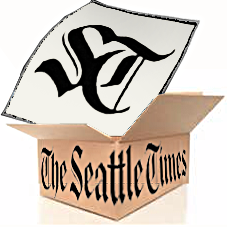
Neal Morton at the Seattle Times has written an excellent report on how much money a school teacher earns in this state.
TEACHER PAY IS CONFUSING
Teacher pay becomes a major issue because of the right of teachers to strike and because parents depend on teachers for that most precious thing, their kids’ futures. And because, in this state, teacher pay is the major part of the tax money the state is supposed to pay to support public schools as a “paramount obligation.”
Every time there is a teacher strike, the unions talk about pay that seems pitifully low. Understanding teacher pay, however, is very difficult because because “base pay,” the part that comes from the State, is only about 80% of total pay. The rest comes from a union negotiation with each district for what is called “TRI” pay … salary for teacher time outside the effort spent in the classroom. This 20% of pay covers everything from meeting with parents to taking courses in managing students with different ethnicity.
From the Times, “TRI, which stands for additional time, responsibility and incentive, is a big chunk of local money originally intended to pay teachers for extras like serving as a high-school department chair or staying after school to tutor struggling students. Over the years, however, TRI has grown into a way to boost pay for teachers — fueled by districts wanting to offer more attractive salaries, and by the state which gave districts that power, and avoided having to fund teacher raises out of its own coffers.”
Of course the unions bargain over TRI. As a result, the typical teacher in Seattle is not paid the $50,000 the union talks about but about $70,000 for a nine month work year. This puts UW Ed school graduates near the top of beginning wages for UW grads other than in Computer Sciences. Now, the fight in Olympia is over the State taking over ALL teacher pay. As a result the Dems and the Reps are having at it. The Dems, largely representing the unions, want to make TRI part of base pay, The Reps want to use this as way to introduce merit pay.